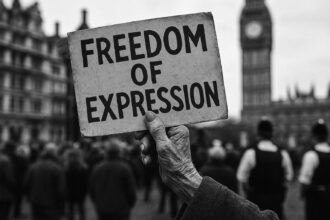Rising mental health content on TikTok is frequently criticised for oversimplifying disorders, promoting unevidenced treatments and spreading misinformation, prompting calls for greater scrutiny and medical accuracy from professionals.
The proliferation of mental health content on platforms such as TikTok has raised significant concerns regarding the accuracy and appropriateness of the information presented. Users often encounter videos that oversimplify or even misrepresent complex conditions, leading to widespread misinformation. A striking example involves videos associated with borderline personality disorder, where everyday emotional experiences, like anxiety over changes in plans or mild mood fluctuations, are routinely miscast as clinical symptoms. Liam Modlin, a therapist and psychology researcher at King’s College London, notes that these interpretations can pathologise normal emotions, which may mislead viewers into believing they suffer from serious mental health issues based on everyday life challenges.
The misuse of therapeutic language is another alarming trend surfacing in this digital discourse. For instance, a recent TikTok video described the emotional experiences of those with bipolar disorder as “mood swings” akin to a pendulum, which significantly simplifies the reality of a condition characterised by prolonged emotional states over weeks. Dan Poulter, a former health minister and NHS psychiatrist, asserted that such narratives trivialise the complexity of mental illnesses, potentially exacerbating the stigma faced by those genuinely affected by them. Language that inaccurately portrays severe mental health crises can further alienate individuals seeking support and understanding.
Furthermore, claims of unevidenced treatments have burgeoned across social media, often touted as quick fixes for deep-seated emotional issues. One video suggested techniques for “healing from trauma” in as little as an hour through simple writing exercises, a notion dismissed by experts like Amber Johnston, an accredited psychotherapist. According to Johnston, such claims lack scientific backing and can dangerously invite individuals to confront unresolved trauma without the necessary support of qualified professionals. Others have encountered assertions that crying serves as a panacea for processing difficult emotions; Amy Durden, another psychotherapist, cautions that the benefits of crying are nuanced and may not apply universally.
Research on the impact of TikTok content regarding mental health has revealed troubling trends. A study indicated that while exposure to mental health-related videos could reduce stigma surrounding mental illness, it did not foster healthy attitudes towards treatment-seeking behaviours. This disconnect highlights the necessity for critical engagement with such content. Experts advise viewers to remain vigilant against red flags, including the absence of professional credentials, high product promotion, and the pervasive encouragement of self-diagnosis. The ever-present risk of trivialising serious mental health concepts cannot be overstated; as noted in discussions around popular yet misapplied psychological terms like “gaslighting” or “narcissist,” poor usage can dilute their meanings and lead to misunderstanding serious conditions.
Research has also illuminated the sheer volume of misleading social media content. A recent analysis of popular TikTok videos about ADHD found that a staggering 52% conveyed medically misleading information. Similarly, a broader study identified that 83.7% of mental health advice circulating under the hashtags #mentalhealthtips and #mentalhealthadvice was deemed misleading, underscoring the pervasive challenge of distinguishing credible sources amidst a sea of misinformation. The pressing need for platforms to implement mechanisms that promote the sharing of accurate and nuanced mental health content has never been more urgent.
The potential for misunderstanding and miscommunication through the simplified language often seen in “therapy speak” warrants concern as well. The trend of adopting jargon without comprehension can lead to interpersonal conflicts, as these terms may be wielded without their intended significance. This proliferation of “psychobabble” not only oversimplifies mental health discussions but also risks trivialising serious issues, leading to damaging consequences for those genuinely in need of support.
In summary, while the rise of mental health discourse on social media might seem like a progressive step towards openness, it demands a careful, discerning approach. Voices in the mental health community stress the importance of evaluating the information shared and seeking out sources that uphold medical integrity and expertise. The dialogue surrounding mental health should remain nuanced and informed, ensuring that serious conditions are not diluted to mere labels or oversimplifications.
Reference Map:
- Paragraph 1 – [1], [2]
- Paragraph 2 – [1], [2]
- Paragraph 3 – [3], [5]
- Paragraph 4 – [2], [6]
- Paragraph 5 – [4], [5]
- Paragraph 6 – [3], [6], [7]
Source: Noah Wire Services
- https://www.theguardian.com/technology/2025/may/31/what-is-the-most-common-mental-health-misinformation-on-tiktok – Please view link – unable to able to access data
- https://time.com/6307996/mental-health-content-red-flags-social-media/ – This article discusses the rise of mental health content on social media platforms like TikTok and Instagram, highlighting the importance of differentiating between credible information and potentially harmful misinformation. Experts suggest watching for red flags when consuming such content, including the absence of shared credentials by influencers, heavy product promotion, overuse of jargon and therapy terms, encouragement of self-diagnosis, interactions with followers potentially crossing professional boundaries, and the promotion of one therapeutic modality as superior. The overarching advice is to cautiously engage with mental-health content on social media and always remember these practitioners are not personalized to individual needs.
- https://time.com/6262891/psychology-terms-misused-gaslighting-toxic-narcissist/ – The article discusses the misuse of certain psychology terms that have become popular in everyday language, particularly through social media platforms. Notable terms such as ‘gaslighting,’ ‘traumatized,’ ‘triggered,’ ‘narcissist,’ ‘love-bombing,’ ‘toxic,’ ‘grooming,’ ‘trauma-bond,’ ‘antisocial,’ and ‘trauma-dumping’ are often overused and misapplied, leading to misunderstandings and dilution of their true meanings. Experts highlight the importance of using these terms correctly to maintain their intended significance and to avoid trivializing serious psychological conditions or behaviors. The article emphasizes that while these terms may provide a convenient way to label behaviors and experiences, their accurate use is crucial for meaningful and nuanced conversations about mental health.
- https://link.springer.com/article/10.1007/s12144-025-07716-z – This study examines the impact of viewing mental health-related TikTok videos over two weeks in a college population. The research aimed to identify whether viewing TikTok videos, specifically mental health-related content, would influence viewers’ attitudes toward and perceptions of mental health stigma and treatment-seeking, as well as their perceptions of their mental health. The findings suggest that while mental health-related content may have a suppressing effect on mental illness stigma, it did not lead to changes in self-pathologizing beliefs or attitudes toward treatment-seeking. The study highlights concerns about the normalization of mental health topics on social media and its potential impact on help-seeking behaviors.
- https://www.bacp.co.uk/bacp-journals/therapy-today/2023/april-2023/the-big-issue – This article discusses the prevalence of misleading mental health content on TikTok. A 2022 study published in the Canadian Journal of Psychiatry analysed the top 100 most popular videos about ADHD on the platform and found that 52% were classified as medically misleading, 27% were based entirely on personal experience, and only 21% were considered useful when compared against diagnostic criteria. Another study by medical health group PlushCare analysed 500 TikTok videos with the hashtags #mentalhealthtips and #mentalhealthadvice and concluded that 83.7% of mental health advice on TikTok is misleading, while 14.2% of videos include content that could be potentially damaging. The article emphasizes the importance of critically evaluating mental health information on social media platforms.
- https://en.wikipedia.org/wiki/Therapy_speak – This Wikipedia article defines ‘therapy speak’ as the incorrect use of jargon from psychology, especially related to psychotherapy and mental health. It highlights how such misuse can lead to miscommunication and relationship damage, as the speaker may not fully understand the terms they are using. The article also discusses how therapy speak is related to psychobabble and buzzwords and is vulnerable to miscommunication and relationship damage as a result of the speaker not fully understanding the terms they are using, as well as using the words in a weaponized or abusive manner. Therapy speak is not generally used by therapists during psychotherapy sessions.
- https://medium.com/trill-mag/how-mental-health-language-loses-meaning-on-social-media-b1cbe28f5b96 – This article explores how mental health language loses meaning on social media platforms. It discusses the normalization of autism online and how the short-form format of social media like TikTok is not the place to gain in-depth information about any subject. The article highlights how the stereotyping and sanitization of autism into something more digestible—either something to laugh at or a quirky character trait—ultimately invalidates the diverse and complex experiences of actual autistic individuals. It emphasizes the need for a more nuanced understanding of mental health conditions beyond the oversimplified portrayals often found on social media.
Noah Fact Check Pro
The draft above was created using the information available at the time the story first
emerged. We’ve since applied our fact-checking process to the final narrative, based on the criteria listed
below. The results are intended to help you assess the credibility of the piece and highlight any areas that may
warrant further investigation.
Freshness check
Score:
10
Notes:
The narrative is recent, published on 31 May 2025 by The Guardian, indicating high freshness.
Quotes check
Score:
10
Notes:
The quotes from experts like Liam Modlin and Dan Poulter are unique to this report, suggesting original content.
Source reliability
Score:
10
Notes:
The Guardian is a reputable UK-based newspaper, lending credibility to the report.
Plausability check
Score:
10
Notes:
The claims about mental health misinformation on TikTok align with existing research and expert opinions, supporting their plausibility.
Overall assessment
Verdict (FAIL, OPEN, PASS): PASS
Confidence (LOW, MEDIUM, HIGH): HIGH
Summary:
The report is recent, original, from a reliable source, and presents plausible claims supported by expert opinions and existing research.













